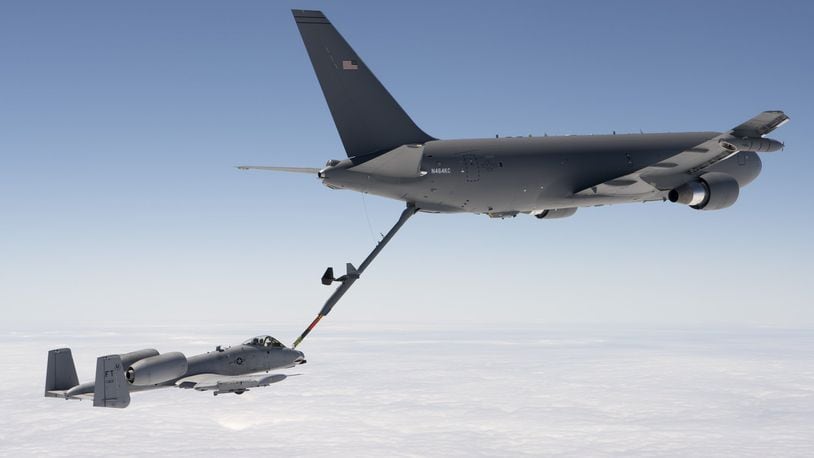Brig. Gen Donna Shipton, Tanker Directorate program executive officer at Wright-Patterson, said in a conference call with reporters Friday the Air Force still expects a spring delivery despite the recent concerns.
RELATED: Boeing nearing air tanker delivery to Air Force
The Air Force plans to buy at least 179 KC-46 tankers through the 2020s to begin replacing 455 aging KC-135 and KC-10 aerial refueling jets that have flown for decades.
The KC-46 is a military version of a Boeing 767 airliner, built in Washington state. The Air Force plans to buy 479 aerial refueling tankers in the coming decades.
The Air Force has an initial $4.9 billion fixed-price contract for development and production of 19 aircraft. Boeing has absorbed about $1.65 billion in additional costs, according to the aerospace maker.
The service branch also signed a $2.1 billion deal for another 15 tankers and was expected to issue another contract in January.
In one recent issue, the Air Force expects further testing in October to determine if high frequency radios on the KC-46 tanker remain off as needed to safely refuel aircraft in flight.
Tests also were planned in coming weeks on refueling boom extensions, according to the Air Force. In at least one case, a refueling boom pushed back into a ground test stand after the boom disconnected, the Air Force said.
The Air Force expected to “close” those two issues and move forward after further testing data was gathered next month. Another issue may take longer to resolve, officials said.
PHOTOS: What to know about the new aerial refueling tanker managed at Wright-Patt
During air-to-air refueling flight tests, the KC-46 boom receptacle has reportedly scraped aircraft receiving fuel outside a receptacle connection. The issue happens with existing tankers, but the Air Force has said it has apparently occurred at a higher rate than other tankers flying today.
“This does happen in the current fleet and so we need to characterize this as compared to that data” to better understand the extent of the problem, Shipton said.
In response to the most recent concerns, Boeing spokesman Charles Ramey said the company continues to make progress on the KC-46.
“We have six airplanes in flight test that are performing well, and more than 30 flowing through production,” he said in an email. “This is a development program and we still have a significant amount of work in front of us to complete certification testing and other activities. While there is near-term cost and schedule pressure, our team remains focused on meeting the customer requirement to deliver 18 tankers to the Air Force in 2018.”
A U.S. Government Accountability Office report in March found the delivery of the first fully capable KC-46 was delayed more than a year and additional delays were possible.
The refueling jet was expected to meet performances expectations, the GAO concluded.
RELATED: Air Force concerned over delays in tanker contract
The GAO found costs for the estimated $44.4 billion program to buy 179 KC-46 Pegasus tankers dropped $7.3 billion from initial projections mostly because the Air Force had not added or revised requirements.
About the Author
